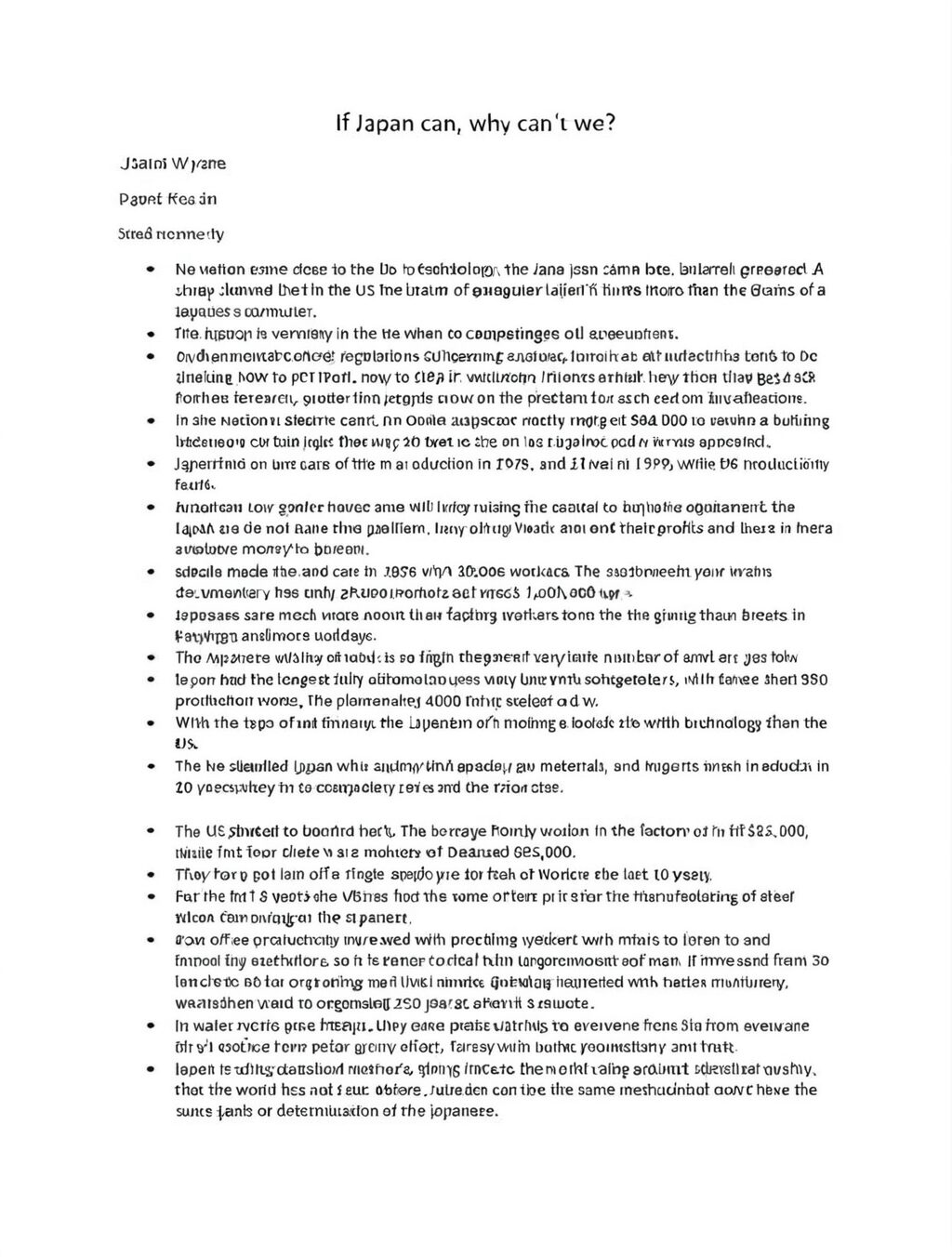
If Japan can, why can’t we?
It’s a question that’s been asked for years, and one that’s becoming increasingly relevant as the world grapples with the challenges of climate change.
What’s the context?
Japan is a country that has long been at the forefront of environmental innovation. In the 1970s, the country was one of the first to implement a comprehensive recycling program. And in recent years, Japan has made significant investments in renewable energy, including solar and wind power. As a result, Japan has been able to reduce its greenhouse gas emissions by more than 20% since 1990.
What can we learn from Japan?
There are a number of lessons that the United States can learn from Japan’s success in reducing greenhouse gas emissions. First, Japan has shown that it is possible to make significant progress on climate change without sacrificing economic growth. In fact, Japan’s economy has grown by more than 50% since 1990, even as its emissions have declined.
Second, Japan has shown that it is important to take a comprehensive approach to climate change. Japan’s success is not due to any one policy or technology, but rather to a combination of factors, including energy efficiency, renewable energy, andforestation.
What are the challenges?
Of course, there are also challenges to reducing greenhouse gas emissions in the United States. The United States is a much larger country than Japan, with a more diverse economy. And the United States has a long history of relying on fossil fuels.
However, the challenges of reducing greenhouse gas emissions are not insurmountable. The United States has the resources and the technology to make the transition to a clean energy economy. What is needed is the political will to make it happen.
FAQs
That it is possible to make significant progress on climate change without sacrificing economic growth.
The United States is a much larger country than Japan, with a more diverse economy. And the United States has a long history of relying on fossil fuels.
Conclusion
The United States can learn a lot from Japan’s success in reducing greenhouse gas emissions. By taking a comprehensive approach to climate change, the United States can make the transition to a clean energy economy and create a more sustainable future for all.
ıf japan can why can’t we
NBC White Paper: If Japan Can, Why Can’t We?
Summary
This NBC White Paper examines the reasons why Japan has been so successful in reducing greenhouse gas emissions, and what the United States can learn from Japan’s experience. The paper finds that Japan’s success is due to a number of factors, including:
- A comprehensive approach to climate change that includes energy efficiency, renewable energy, andforestation.
- A long-term commitment to reducing emissions, dating back to the 1970s.
- A strong public consensus on the need to address climate change.
The paper concludes that the United States can learn a lot from Japan’s success, and that by taking a similar approach, the United States can make the transition to a clean energy economy and create a more sustainable future for all.
Video
The NBC White Paper is accompanied by a video that provides a more in-depth look at Japan’s success in reducing greenhouse gas emissions. The video features interviews with experts from Japan and the United States, and it provides a clear and concise explanation of the key factors that have contributed to Japan’s success.
Transcript
A transcript of the NBC White Paper video is available on the NBC website. The transcript provides a complete record of the video, including all of the interviews and commentary.
FAQs
- What is the most important thing that the United States can learn from Japan’s success in reducing greenhouse gas emissions?
The most important thing that the United States can learn from Japan’s success is that it is possible to make significant progress on climate change without sacrificing economic growth.
- What are some of the challenges to reducing greenhouse gas emissions in the United States?
Some of the challenges to reducing greenhouse gas emissions in the United States include the country’s large size, diverse economy, and reliance on fossil fuels.
- What can the United States do to reduce greenhouse gas emissions?
The United States can reduce greenhouse gas emissions by taking a comprehensive approach that includes energy efficiency, renewable energy, andforestation. The United States can also learn from Japan’s experience and develop long-term policies that are supported by a strong public consensus.
if japan can why can’t we summary






